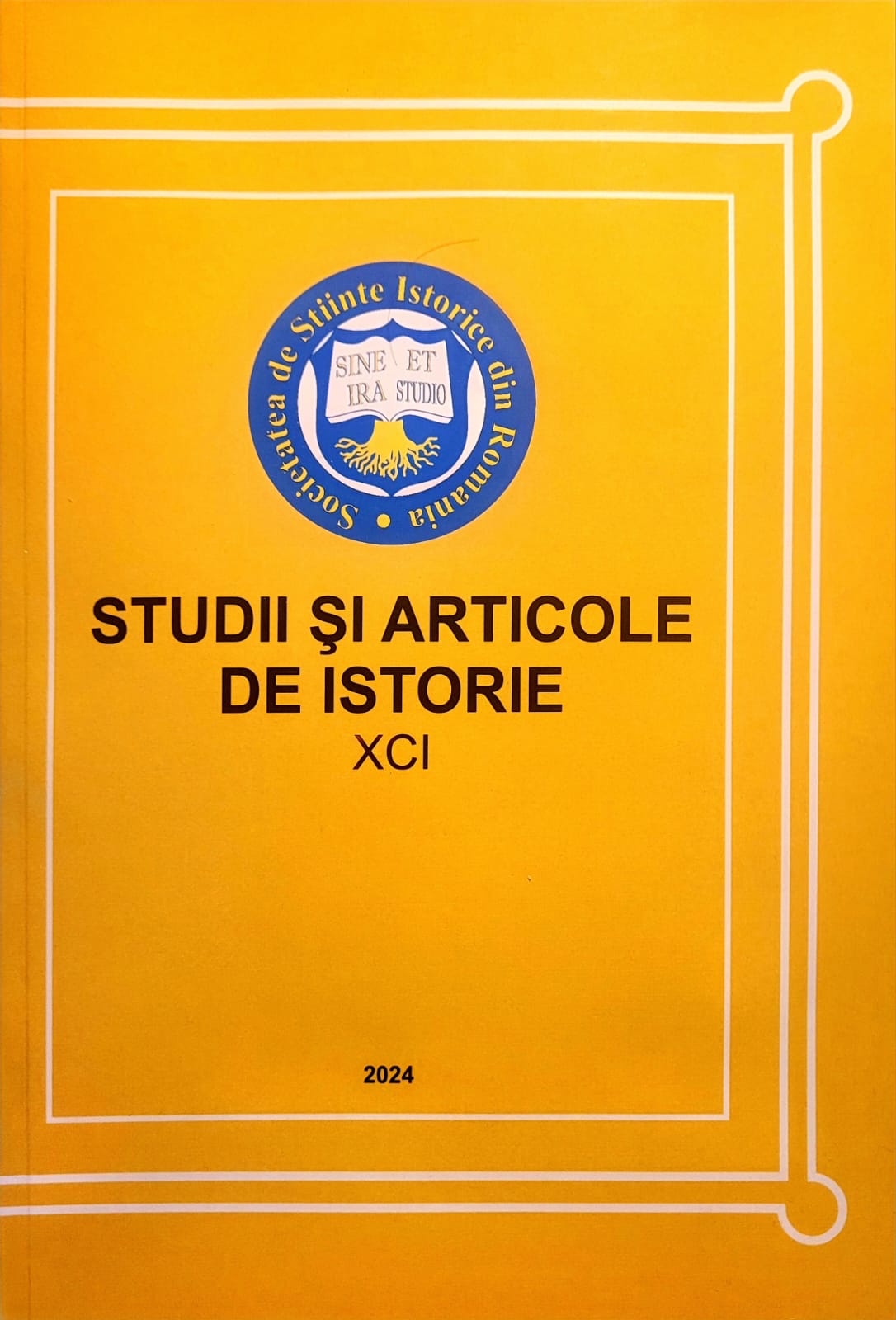De la Imperiul Otoman (1918) la Republica Turcia (29 octombrie 1923). Relațiile diplomatice româno-turce în 1923-1924
From the Ottoman Empire (1918) to the Republic of Turkey (29th october 1923). The Romanian-Turkish diplomatic relations between 1923 and 1924
Author(s): Dan ProdanSubject(s): History, Diplomatic history, Recent History (1900 till today), Pre-WW I & WW I (1900 -1919), Interwar Period (1920 - 1939)
Published by: Societatea de Ştiinţe Istorice din România
Keywords: Ottoman Empire; Romania; Constantinopole; Great National Assembly in Angora (Ankara); Mustrafa Kemal Gazi; Peace of Laussane (Switzerland); 24th July 1923; Republic of Turkey; 29th October 1923; Roman
Summary/Abstract: As a subject of international law in the contemporary era, the anniversary and celebration of the proclamation of an independent and sovereign state are natural rights and obligations with double meaning, internal and external, of every state entity that has gone through this experience – genesis which is unique in its dimensions. Also, the tribute to such an event is a gesture of healthy international morals, protocol, respect and diplomatic common sense for the states that develop friendly and collaborative relations with the celebrated entity, and based on a common past, a neighborhood of tens or hundreds of years, of major common regional and / or international state interests. This is the case of Romania and the Republic of Turkey (Türkiye Cümhüriyeti) which celebrated on 29th October 2023 a century of statehood in new republican frameworks, between the two political entities developing diplomatic relations on subjects of international law in the last hundred years (1923-2023).The period 1919-1923 was the one in which Romanian – Ottoman relations evolved from war to peace. During that period, both states went through deep complex internal structural changes and reconsiderations of their place and role in Central-Southern Europe – The Black Sea – Bosphorus – Dardanelles – Eastern Mediterranean – Anatolia – Levant. Great Romania consolidated and developed external national interests for securing and consolidating access to the world's seas and oceans. The Turkish nationalist movement, led by Mustafa Kemal Gazi, secured Turkish national identity, independence and statehood in Anatolia and Eastern Thrace, on the ruins of the former Ottoman Empire. But Great Romania and „New Turkey" also had strong common interests in the aforementioned strategic area, which facilitated the resumption and development of complex bilateral relations. The Peace Treaty of Lausanne (Switzerland) with the related documents signed on 24th July 1923 ended the Greco-Turkish war and normalized the complex political-diplomatic relations between the signatory states, being also an official international recognition of the „New Turkey" and her borders.The Turkish nationalist movement, victorious in the War of Independence against the Greek invaders (1919-1922), was legitimized and internationally recognized by the Treaty of Lausanne and the specific Annexes, through its representatives, the Great National Assembly in Angora (Ankara) led by Mustafa Kemal Gazi. The Republic of Turkey was proclaimed as a form of political organization of the Turkish state (29th October 1923), Gazi was elected president and the first republican nationalist government led by Ismet Pasha was confirmed. The new Turkish state thus entered the concert of Euro-Asian political entities, with a clear programme of construction and internal reformation, of international identity affirmation, all actions being based on the comprehensive Kemalist principle: „Peace in the country, peace in the world!". Thus, chronologically, the first interwar stage of Romanian-Turkish relations ended.The second stage began with the proclamation of the Republic of Turkey (29th October 1923) with all the changes, reforms and novelties imposed by the international assumption and promotion of the new Turkish state identity. The years 1923-1924 meant, as far as bilateral relations are concerned, the continuation of the application of those foreign policy principles and practices assumed and respected by both partners, on an upward line, on the one hand; the emergence and evolution of political, diplomatic, economic, financial, patrimonial, etc. problems which needed to be negotiated and resolved, on the other hand. Some of these problems had their origin inside the two countries, others were provoked by the European states that saw their political - military - economic - financial interests threatened in Turkey and Romania. The issues in dispute, among which the historically abnormal, artificial, dangerous friendship between Turkey and Soviet Union versus the Romanian-Soviet dispute regarding Bessarabia, maintained the diplomatic atmosphere of minimal, restrained, preventive trust in „the Other", in „the Turk”. As a result, the stage of Romanian - Turkish relations, which began in 1923-1924, had a tortuous, ambiguous, oscillating, more intense or slower evolution, depending on the disruptive internal and / or external factors that influenced them.
Journal: Studii şi articole de istorie
- Issue Year: 2024
- Issue No: 91
- Page Range: 323-345
- Page Count: 23
- Language: Romanian

